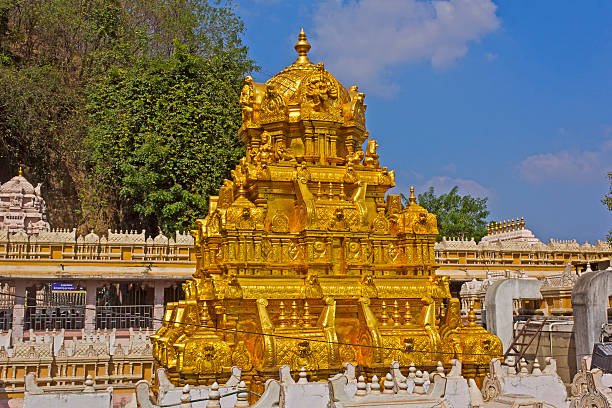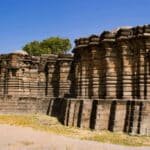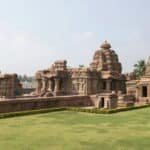Vijayawada, located in the heart of Andhra Pradesh, is one of the fastest-growing cities in India. Often referred to as the “Business Capital of Andhra Pradesh”, this vibrant city is known for its rich history, cultural heritage, political significance, and economic vitality. Situated on the banks of the Krishna River and surrounded by the Eastern Ghats, Vijayawada is a blend of natural beauty, historical landmarks, and modern infrastructure. This article delves deep into the city’s geography, history, economy, culture, tourism, and more.
—
Geography and Location
Vijayawada is located in the Krishna district of Andhra Pradesh. It lies in the Andhra region and serves as a gateway to the coastal districts of the state. The city is strategically positioned on the banks of the Krishna River, flanked by the Indrakeeladri Hills, making it a naturally scenic location.
Coordinates: 16.5062° N, 80.6480° E
Elevation: Approximately 11 meters above sea level
Climate: Tropical climate with hot summers, moderate winters, and heavy monsoon rainfall
The Prakasam Barrage, built across the Krishna River, is a major landmark and also helps in irrigation and water supply to the surrounding agricultural lands.
—
History and Etymology
The name Vijayawada translates to “Place of Victory”. According to local legends, the goddess Durga killed the demon Mahishasura and rested here, giving the place its name. The famous Kanaka Durga Temple, located on the Indrakeeladri Hills, is believed to be where the goddess manifested herself.
Historically, Vijayawada has been under the rule of various dynasties:
Satavahanas
Chalukyas
Vijayanagara Empire
Qutb Shahis
Mughals
British
Each regime contributed to the city’s rich cultural and architectural heritage. During British rule, it was known as Bezawada, a name still used colloquially.
—
Demographics and Population
As per the latest estimates (2021 census projections), Vijayawada has a population of over 1.2 million people in the urban agglomeration. It is the second-largest city in Andhra Pradesh after Visakhapatnam.
Languages Spoken: Telugu (official), English, Hindi
Literacy Rate: Approximately 82%
Religions: Predominantly Hindu, with minorities of Muslims, Christians, and others
—
Economy and Industry
Vijayawada is the commercial capital of Andhra Pradesh and plays a crucial role in the state’s economy. The city is a major hub for:
1. Agriculture
The fertile lands around Vijayawada support extensive agriculture.Major crops: Rice, sugarcane, maize, and mangoesThe Krishna delta is among the most productive agricultural zones in India.
2. Commerce and Trade
It is a major trading center, especially for textiles, automobiles, hardware, and consumer goods.Wholesale markets like Kaleswara Rao Market and One Town Market are popular.
3. Industries
Food processing, textile manufacturing, and construction materialsAuto Nagar, one of Asia’s largest auto industrial estates, is located here.
4. Real Estate and Infrastructure
Rapid urbanization and infrastructure development have made the real estate sector boom.
Part of the Andhra Pradesh Capital Region Development Authority (APCRDA)
—
Transport and Connectivity
Vijayawada is known for its excellent connectivity across India via road, rail, and air.
Road
National Highways NH16 (Kolkata-Chennai) and NH65 pass through the city.
The Pandit Nehru Bus Station (PNBS) is one of the largest bus terminals in Asia.
Rail
Vijayawada Junction is one of the busiest railway stations in India.
A major junction on the Howrah-Chennai and Delhi-Chennai railway routes.
Air
Vijayawada International Airport (Gannavaram) offers domestic and limited international flights.
Direct flights to major cities like Hyderabad, Bengaluru, Chennai, Delhi, and Mumbai.
—
Culture and Festivals
Vijayawada has a diverse and rich cultural scene, deeply rooted in Telugu traditions.
Major Festivals
Dasara (Dussehra): The most important festival celebrated at the Kanaka Durga Temple.
Makara Sankranti
Diwali
Ugadi
Krishna Pushkaralu (once every 12 years) draws millions of devotees.
Arts and Crafts
Kuchipudi dance performances, traditional music, and folk art
Craftsmanship in Kondapalli toys (from nearby Kondapalli village)
—
Education and Institutions
Vijayawada is a hub for education and competitive exam coaching in Andhra Pradesh.
School Education: Numerous CBSE, ICSE, and state board schools
Higher Education:
SRR & CVR Government College
PB Siddhartha College of Arts & Science
NTR University of Health Sciences (specializing in medical education)
Coaching centers for IIT-JEE, NEET, UPSC, and other competitive exams
—
Tourist Attractions in Vijayawada
1. Kanaka Durga Temple – Dedicated to Goddess Durga, located atop the Indrakeeladri Hills.
2. Prakasam Barrage – A scenic dam across the Krishna River.
3. Bhavani Island – One of the largest river islands in India; ideal for recreation and picnics.
4. Undavalli Caves – Ancient rock-cut caves dating back to the 4th century.
5. Gandhi Hill – With a memorial and library dedicated to Mahatma Gandhi.
6. Mangalagiri Temple – Famous for its unique deity and sweet ‘Panakam’ offering.
—
Modern Development and Future Prospects
Since the bifurcation of Andhra Pradesh in 2014, Vijayawada has played a central role in the state’s development plans. It forms a key part of the Amaravati Capital Region and has witnessed significant investment in infrastructure, smart city projects, and urban planning.
The Metro Rail Project is in the pipeline to ease traffic congestion and improve urban mobility.
—
Conclusion
Vijayawada, with its historical roots, cultural richness, and modern outlook, is truly the heartbeat of Andhra Pradesh. From ancient temples to bustling markets, from serene riverbanks to cutting-edge development projects, the city offers a perfect blend of tradition and progress. Whether you’re a traveler, a business investor, or a student, Vijayawada welcomes you with open arms and endless opportunities.


